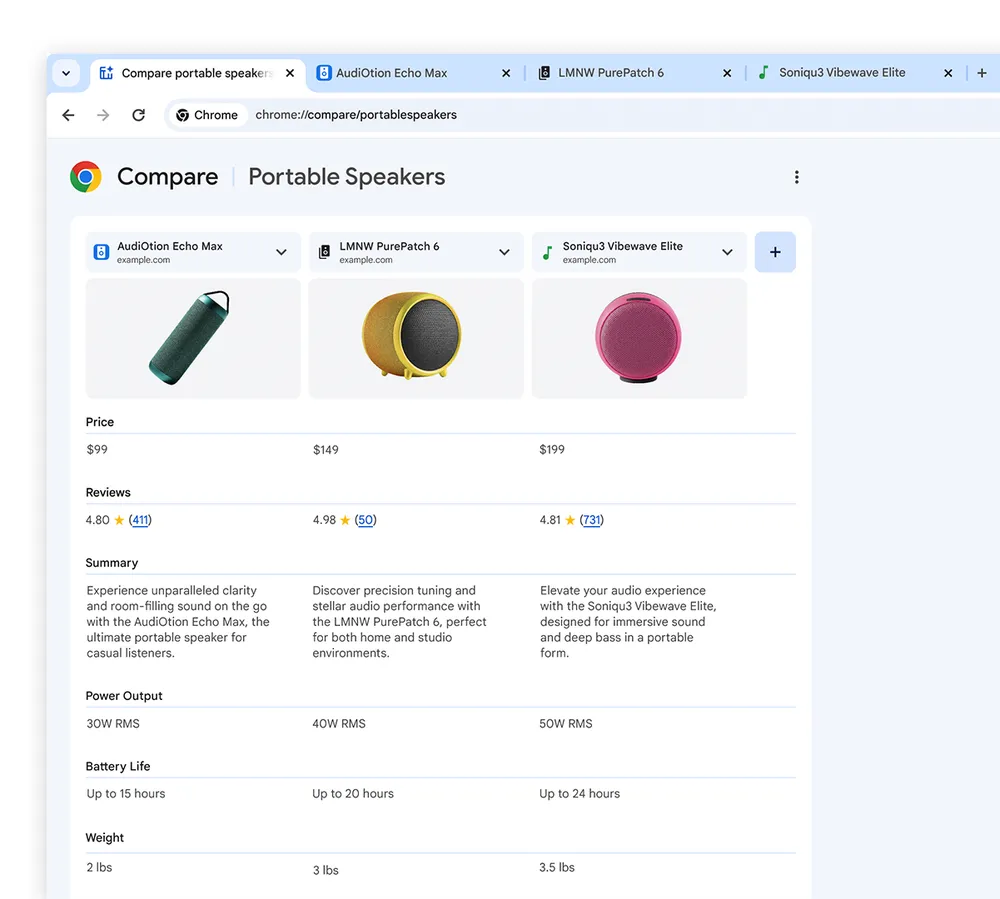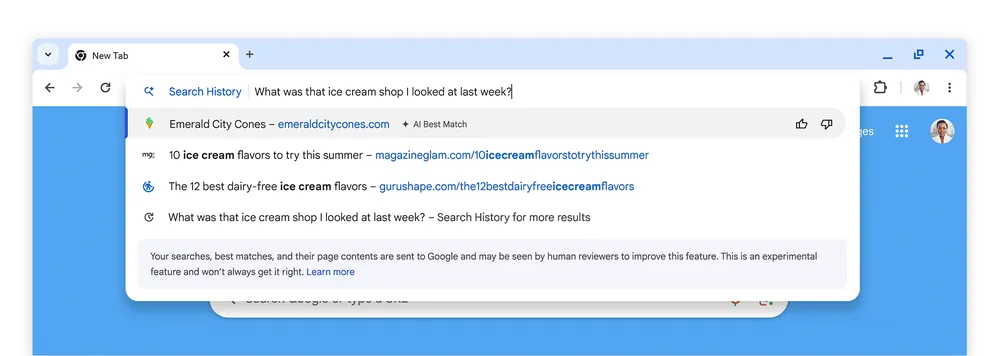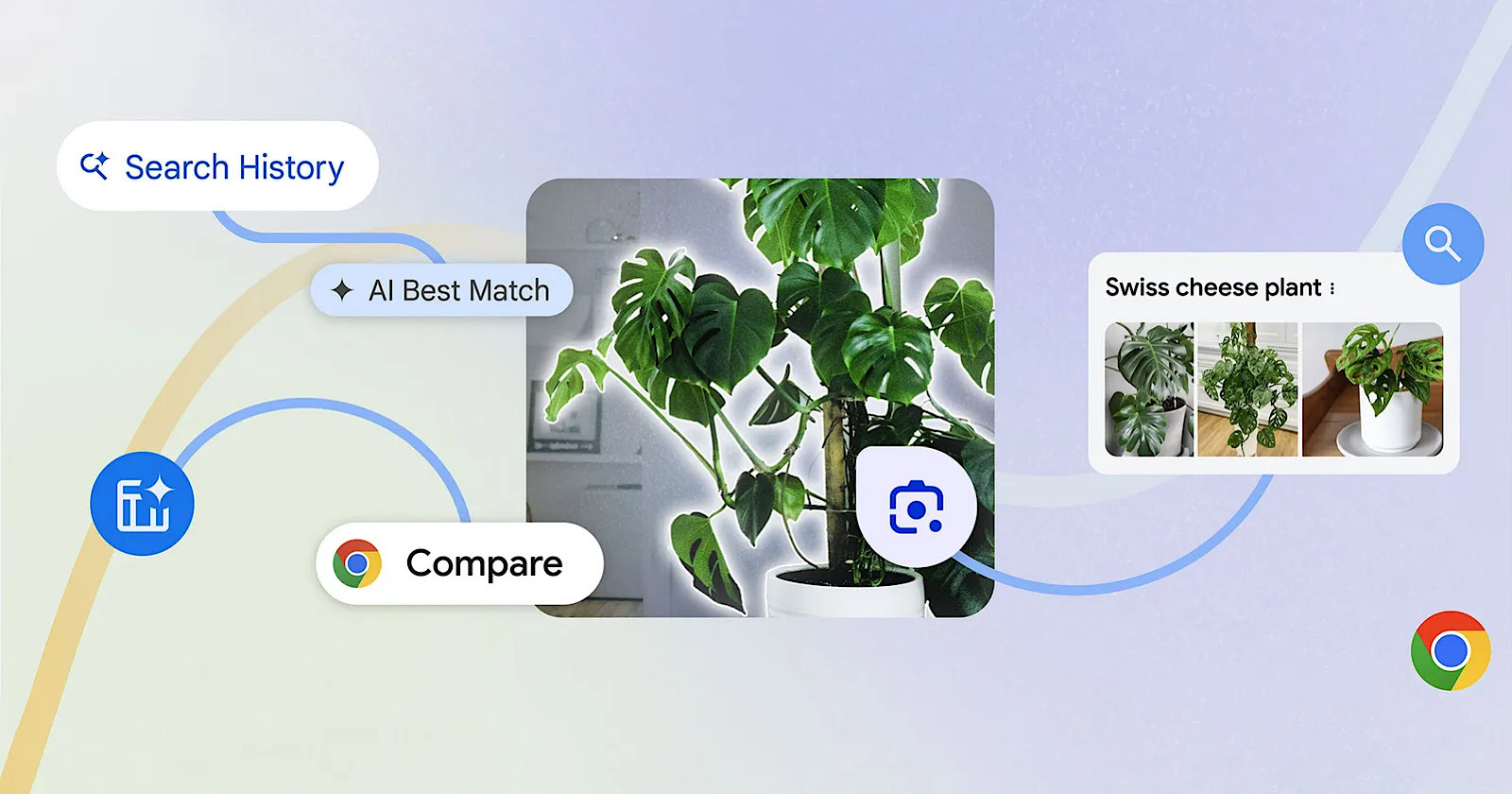Google has announced three features for its Chrome browser, which will roll out in the coming weeks.
These additions, incorporating Google’s AI and Gemini models, offer new ways to interact with web content and manage browsing history.
Desktop Integration Of Google Lens
The first update brings Google Lens, previously a mobile-only feature, to the desktop version of Chrome. This tool allows you to search and ask questions about visual content on webpages.
You can activate Lens via an icon in the address bar or through the right-click menu, then select areas of a page to initiate a visual search.
Results appear in a side panel, where users can refine searches or ask follow-up questions.
Tab Compare For Product Research
A new feature called Tab Compare is being introduced, initially for U.S. users.
This tool generates an AI-powered overview of products from multiple open tabs, compiling information such as specifications, features, prices, and ratings into a single comparison table.
The feature is designed to streamline online shopping research, though its effectiveness in real-world scenarios remains to be seen.
 Screenshot from blog.google.com, August 2024.
Screenshot from blog.google.com, August 2024.Natural Language Processing For Browser History
Google is updating Chrome’s history feature with natural language processing capabilities.
This will allow users to search their browsing history using conversational queries, such as “What was that ice cream shop I looked at last week?”
Google states that this feature will be optional and can be turned on or off in the browser settings.
 Screenshot from blog.google.com, August 2024.
Screenshot from blog.google.com, August 2024.Privacy Considerations
While these features promise enhanced functionality, they also raise potential privacy concerns.
Google assures that the enhanced history search will not include data from incognito mode browsing. However, the extent of data collection and processing required for these AI features is unclear from the announcement.
Broader Context
These updates show AI’s growing role in browsers. As tech companies race to add advanced features, we see trade-offs between functionality and privacy, with potential ripple effects on web usage and ecommerce.
Parisa Tabriz, Vice President of Chrome, hints at more AI features in the pipeline, signaling a broader push to weave AI into browsing tools.
The rollout starts stateside and will be phased. As always, performance and user uptake will be the success metrics.

